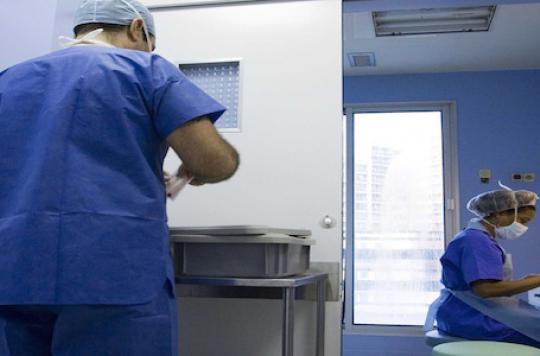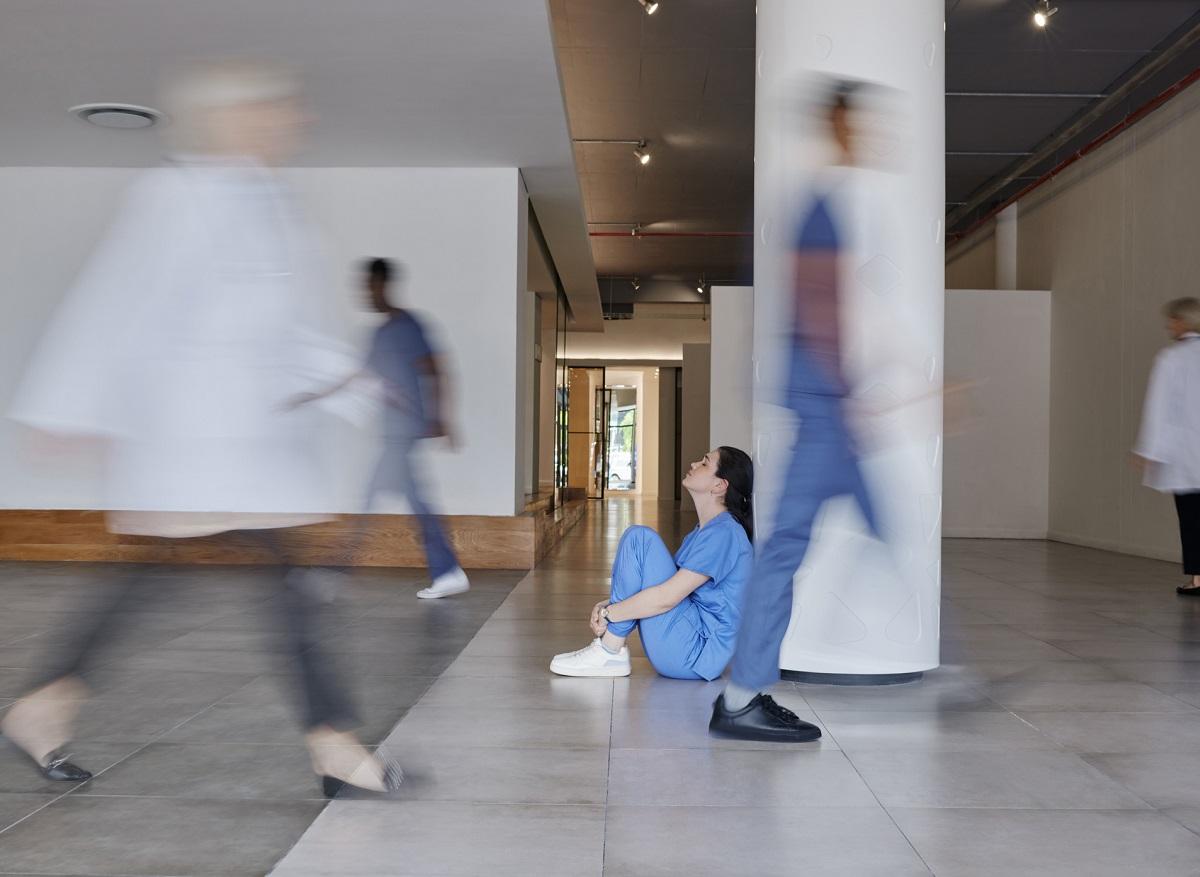A study reveals that 30% of operating room specialists have a stress level greater than 8 out of 10. This moral and physical fatigue is not without consequences for patients.

Nearly a third of practitioners working in a heavy technical platform are said to be on the verge of a nervous breakdown. The suffering of caregivers is a phenomenon already known. This time it’s the association Scientific asspro who wants to “sound the alarm bell” with a study conducted among 1024 specialists (orthopedic surgeons, anesthesiologists or obstetrician gynecologists). This reveals that the majority of them rate their stress level as greater than or equal to 8 out of 10.
These specialists, who often work between 60 and 80 hours a week, point to the heavy administrative tasks that lengthen their days, the financial pressure and the concern for productivity, which are perceived as so many sources of anxiety and stress in their work. profession, even if it is not directly their practice inside the operating room.
This study also reveals the disappointment of a quarter of practitioners and their pessimism about the practice of their profession. A third of them are spontaneously very critical of the French health system.
The feeling of these professionals is ambivalent: while a large majority of practitioners (81.2%) testify to a great desire to exercise their profession, a quarter of them apprehend in the morning the workload of the day to come.
Once the day’s work is over, 25% of them say they are exhausted, have trouble sleeping, headaches or spinal pain, as many“ significant elements of a state of fatigue and persistent stress after work. ”
Some practitioners even say they relive the difficult moments of their day after the end of their work. These testimonies are symptomatic of a state of high stress, which can lead to burnout.
Listen to Vincent Travers, hand surgeon and general secretary of the Asspro scientific association:“Burnout is a vicious circle for surgeons and anesthetists”
For surgery, burn-out is the result of a discrepancy between the very positive image that doctors have of their profession, and the legal and media pressure to which it often exposes them with a certain violence.
Thus, lawsuits brought by patients are particularly difficult to manage. Even if 90% of them lead to a dismissal, they often give rise to a deep feeling of injustice among the nursing staff.
During the stress management seminars he regularly organizes, Vincent Travers urges his colleagues to put these delicate situations into perspective. “I am saying that we should not focus on the only patient who lodged a complaint during the year. Better to think of those who were satisfied with the care they received ”. He also asks the surgeons he supports to optimize administrative tasks, and if possible to offload part of the work to their collaborators.
Collective reflection to prevent burn-out and operative risk
This stressful situation obviously has serious consequences, both for caregivers and their patients. While there are between 60,000 and 95,000 each year “serious adverse events” out of a total of 1.5 million surgical interventions (i.e. 4 to 6%), the stress of health professionals is “A signal capable of alerting to a potential risk of an increase in accidents”. The fear of finding oneself in a delicate situation, in particular from a legal point of view, scares the youngest off and threatens with disaffection the specialties most at risk (obstetrics, anesthesia).
The consequences of a burnout are just as devastating on the health of the doctor himself: American studies report an impressive rate of invalidity due to mental disorders among health professionals, including the rate suicide rate (6%) is almost twice that of the rest of the population. “ Doctors sometimes have the feeling of being supermen, but they have to admit that they are men like any other, and that they also sometimes have to seek treatment, ”sighs Vincent Travers.
He wants the study published today to be a wake-up call, to push caregivers to recognize their weaknesses and those of their colleagues. The goal, “ to screen those in a situation of serious depression, who, sensitized, will be able to benefit from personal therapeutic work. »Having himself suffered a burnout a few years ago, Vincent Travers preferred to take measures to radically change his lifestyle: by going from full-time to part-time (i.e. 35 hours of work). weekly) and leaving a hospital run by a large financial group to a “human-sized” clinic.
.

















